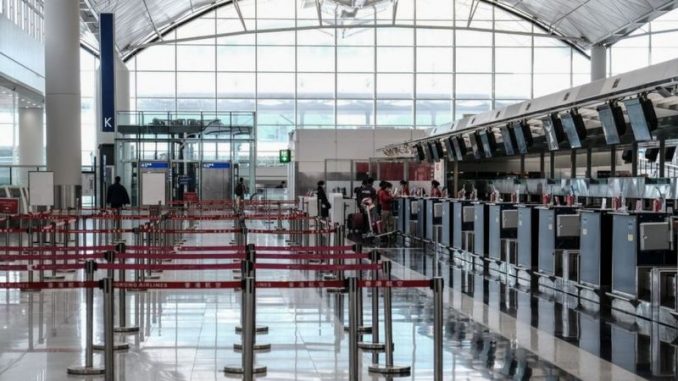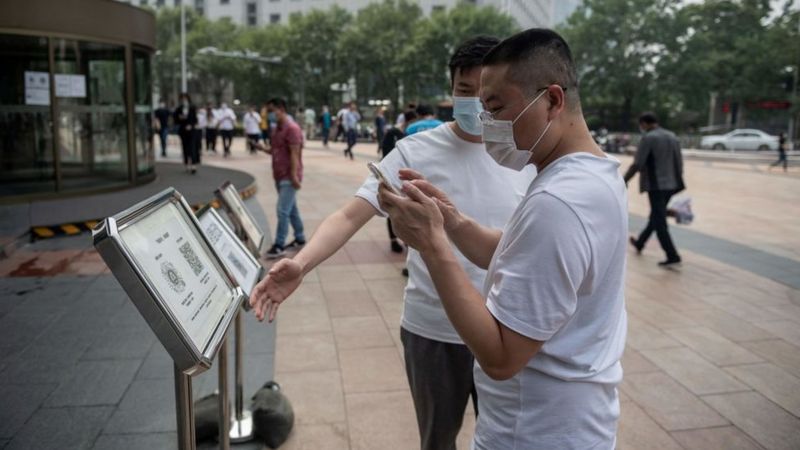
Chinese President Xi Jinping has called for a “global mechanism” that would use QR codes to open up international travel.
“We need to further harmonise policies and standards and establish ‘fast tracks’ to facilitate the orderly flow of people,” he said.
The codes will be used to help establish a traveller’s health status.
But Human Rights advocates warn that the codes could be used for “broader political monitoring and exclusion”.
Mr Xi made the comments at the G20 summit, an online meeting of heads of state from the world’s 20 largest economies, which was hosted by Saudi Arabia over the weekend.
He said the codes could be used to recognise “health certificates based on nucleic acid test results”, according to a transcript published by Chinese state news agency Xinhua.

Mr Xi didn’t go into further detail about how the travel scheme might work, or how closely it would be modelled on China’s QR code apps, which have been used to help contain the virus on the mainland.
“We hope more countries will join this mechanism,” he added.
QR codes are bar codes that can be read by mobile phones. Under the scheme China has employed since February, users are issued a traffic-light style health code, with a green code allowing someone to travel freely, and an orange or red code indicating that they need to quarantine for up to two weeks.
The codes are based on a combination of big data and information submitted by the users themselves.
The technology was developed by financial technology giant Ant Financial, and is available through its main app Alipay, but also on WeChat, which belongs to Alipay’s competitor Tencent.
Mr Xi also called for the re-opening of the global economy, including restoring “global and industrial supply chains” and the “liberalisation of trade of key medical supplies”.
Reopening travel lanes remains a challenge for most countries, with spikes in the disease making it difficult for authorities to lift travel restrictions.
A travel bubble between Singapore and Hong Kong, for example, was postponed shortly before it was due to start this weekend due to a sudden spike in cases in Hong Kong.
‘Trojan Horse’
In a tweet, the executive director of Human Rights Watch Kenneth Roth expressed caution over Mr Xi’s proposal.
“An initial focus on health could easily become a Trojan Horse for broader political monitoring and exclusion,” he said.
The city of Hangzhou has said it plans to make a permanent version of the QR code-based software, which would be used to assign citizens a personal score based on their medical history, health check-ups and lifestyle habits.
QR codes have been used differently elsewhere.
In Singapore and Australia, for example, they’re used for contract tracing, with residents using them to check into and out of places they visit, including malls, restaurants and their places of work.
